BioTech
Cell-Capture
Early Cancer Detection is enabled using a micro-fluidic platform that captures low-abundant cancer cells from whole blood with high efficiency. Replication-based micromanufacturing in polymers is used to produce the device which also incorporates cell-capturing surface modification. For more information contact Prof. Michael Murphy.

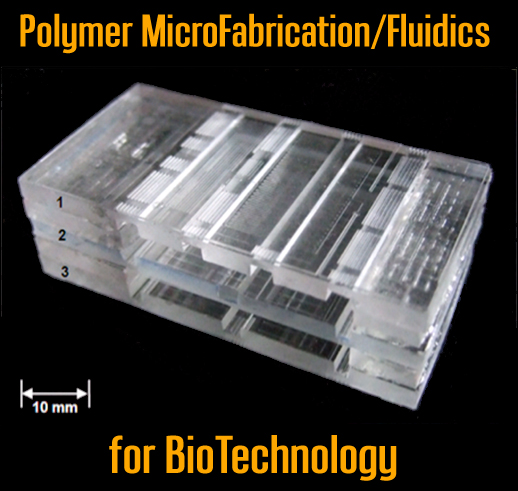
Modular MicroFluidics
DNA mutations related to various cancers can be detected with high fidelity through sequential biochemical reactions. A Polymerese Chain Reaction (PCR), Ligation Detection Reaction (LDR) along with incubation of samples and mixing of reagents is performed in a modular interconnected micro-chip stack. Replication-based micromanufacturing in polymers is used to produce the device which also incorporates self-aligning assembly features. For more information contact Prof. Michael Murphy.
Molecular Machines
For more information contact Prof. Dorel Moldovan.


Bio-Fabrication
Nano-composite foam technology is developed to enable bone growth. For more information contact Prof. Ram Devireddy.
BioMEMS/NEMS
Bio-Micro ElectroMechanical (BioMEMS) and Bio-Nano ElectroMechanical (BioNEMS) systems are developed to measure the length of DNA strands and to precondition them for single-molecule detection protocols. Focused Ion Beam (FIB) nanofabrication and Nano Imprint Lithography are used to manufacture prototypes. For more information contact Prof. Sunggook Park.

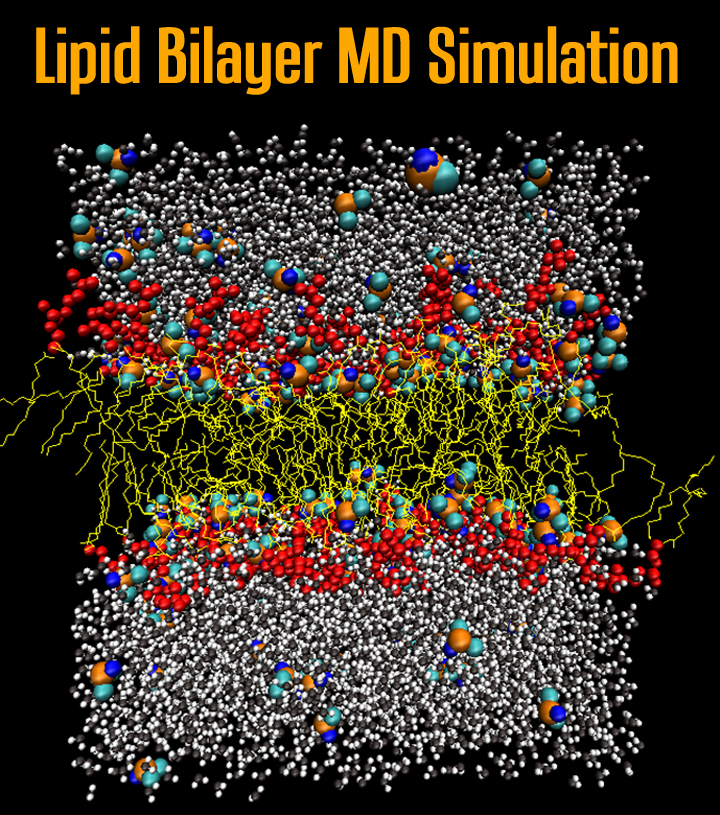
Membranes
Lipid bi-layers are very good models of cell membranes. Molecular Dynamics simulations are conducted to explore the physical characteristics of these systems and their ability to be permeated by molecules, such as vitamin E. For more information contact Prof. Dorel Moldovan.
Drug Delivery
The interaction of micelles with lipid bi-layer membranes modeling cell membranes is studied through Molecular Dynamics. The study is performed for drug delivery applications. For more information contact Prof. Dorel Moldovan.
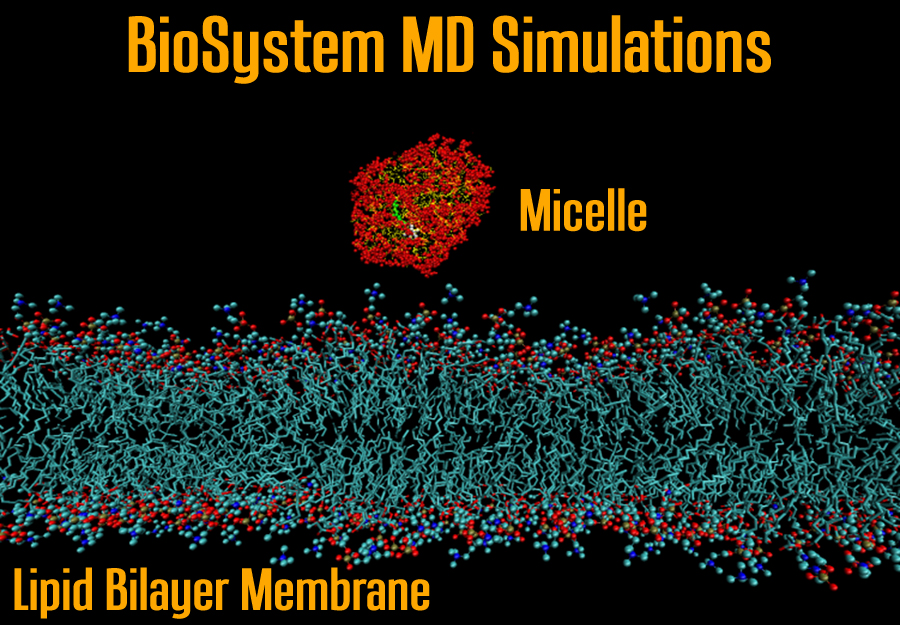
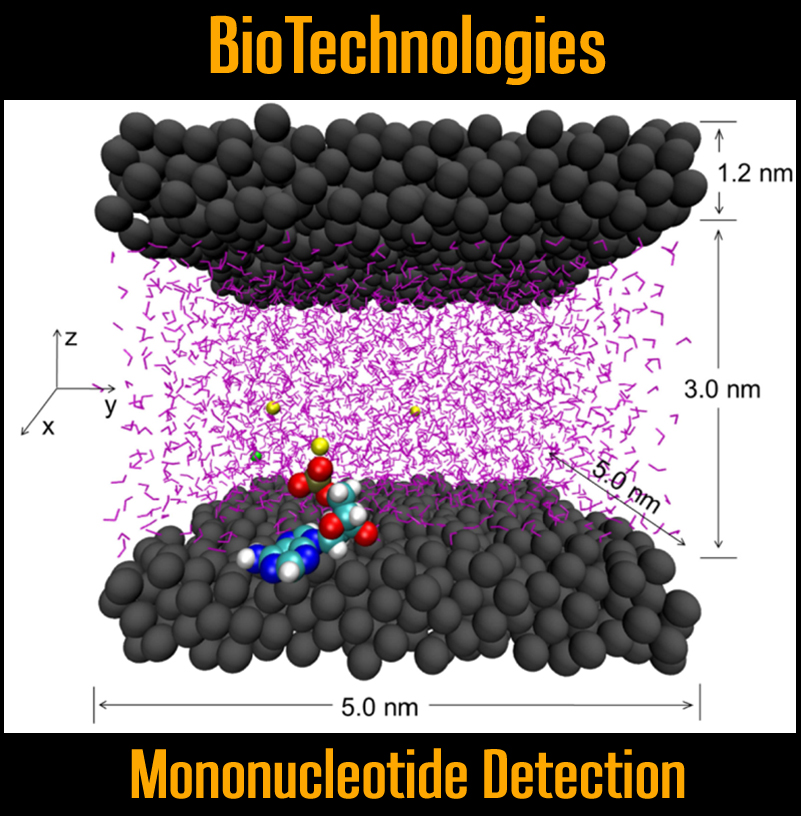
Single Molecule ID
The transport of mono-nucleotides (basic elements of DNA) through nano-slits are studied using non-equilibrium Molecular Dynamics. The simulations are used to assess the feasibility of time-of-flight-based identification of each base, thus enabling unprecedentedly fast DNA sequencing. Simulations of pressure-driven transport of mono-nucleotides indicate that identification is feasible over several microns of slit length. For more information contact Prof. Dimitris Nikitopoulos or Prof. Dorel Moldovan.
Cryo-Preservation
Cryo-preservation of biological tissues. For more information contact Prof. Ram Devireddy.

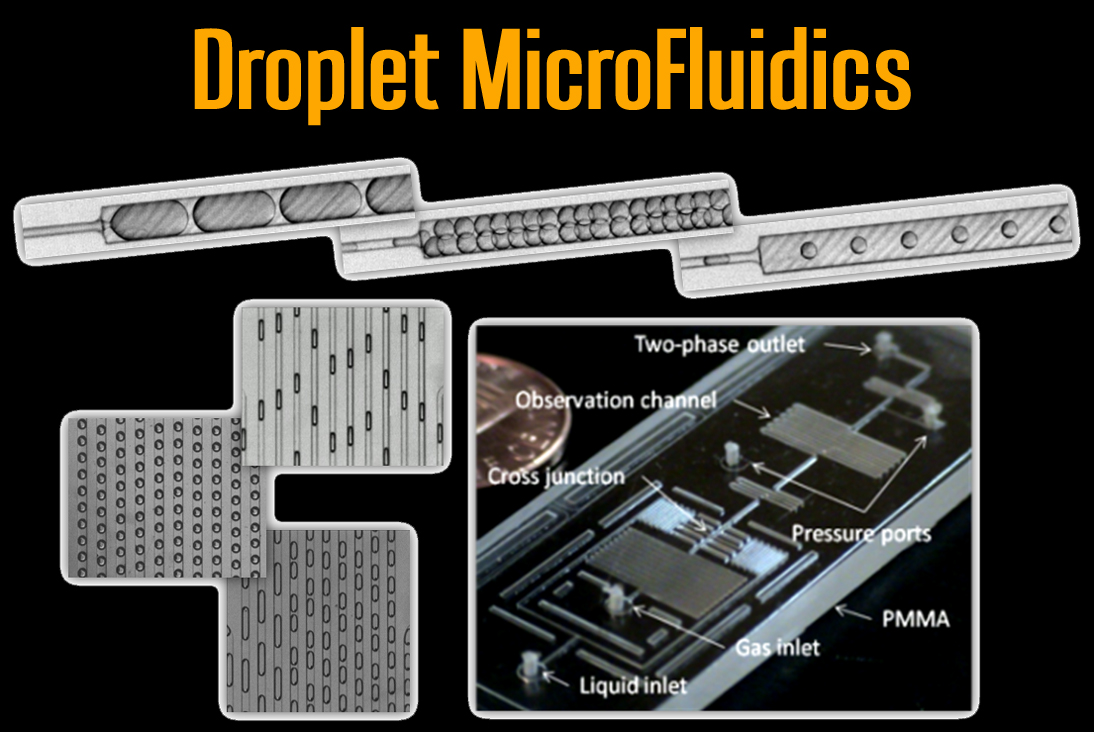
Droplet MicroFluidics
Micro-scale droplets/plugs can be individual labs wherein bio-reactions occur. Droplet/plug trains enable many reactions enhanced by induced hydrodynamic/capillary mixing. Polymer chips made by replication micro-manufacturing are used to study these flows for effective design of droplet microfluidics for bioanalytical applications. For more information contact Prof. Dimitris Nikitopoulos.